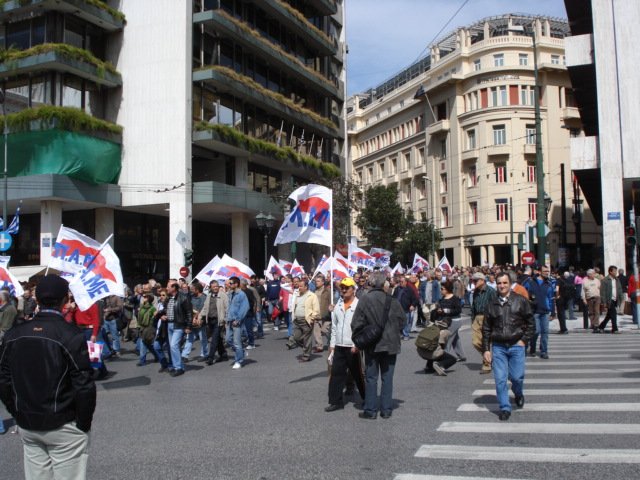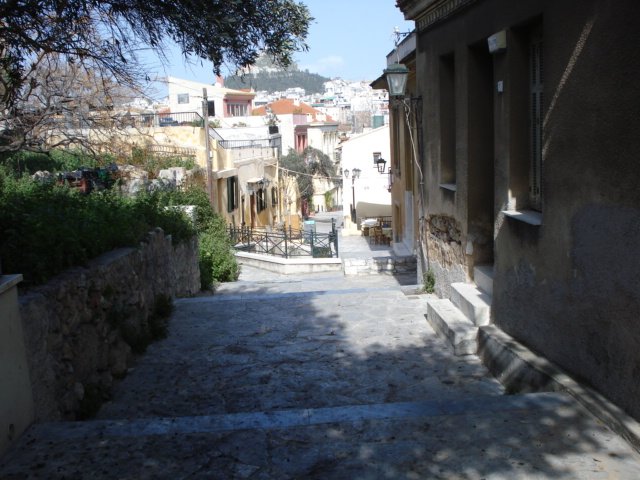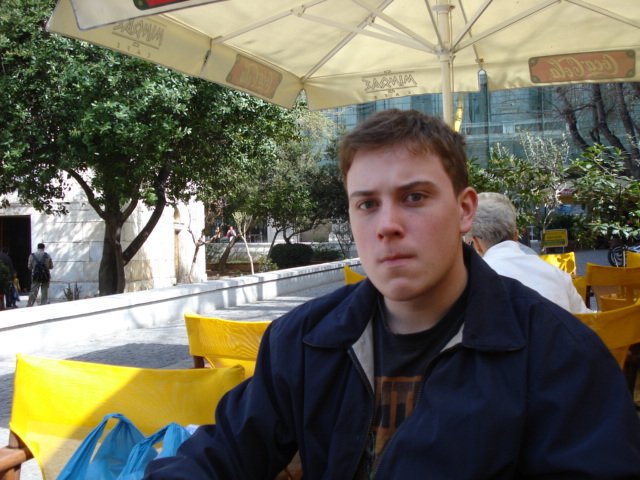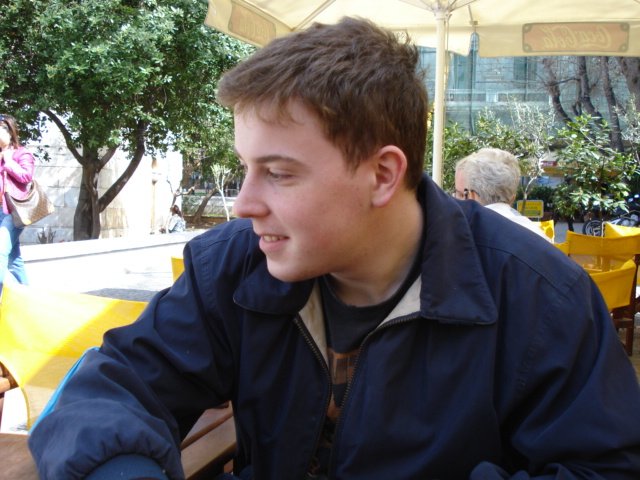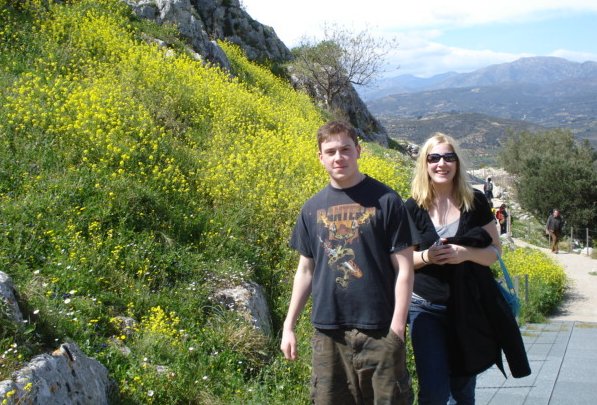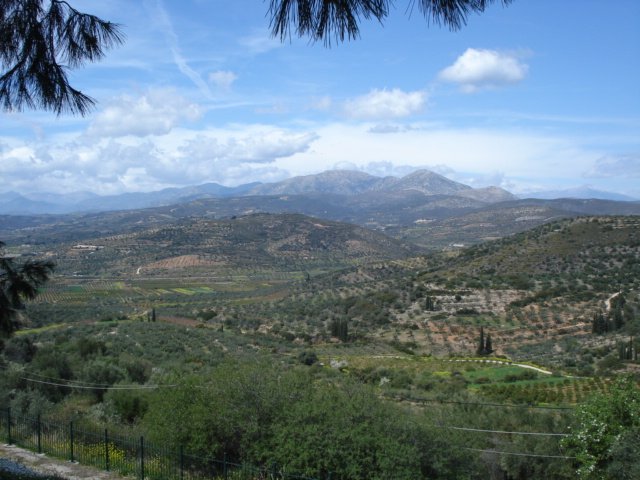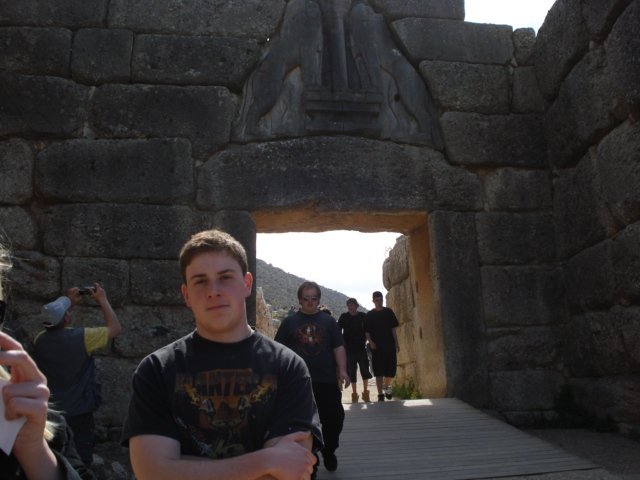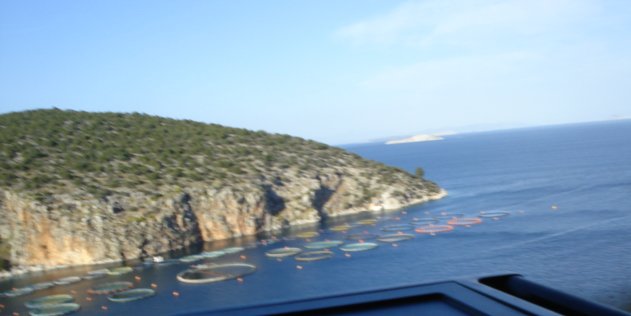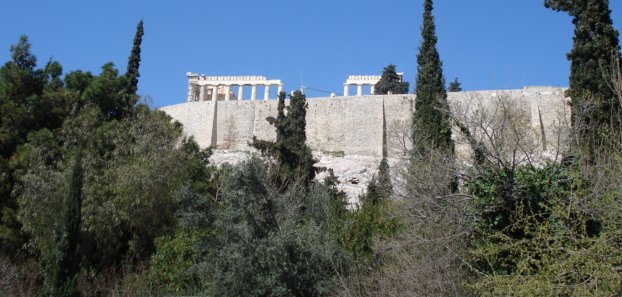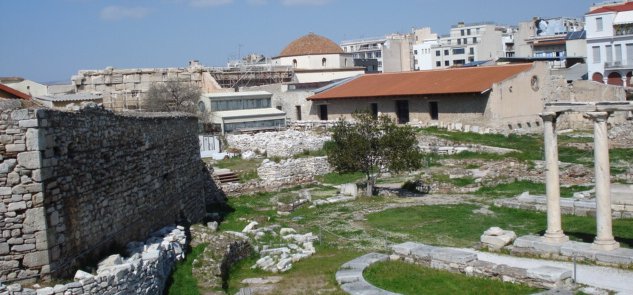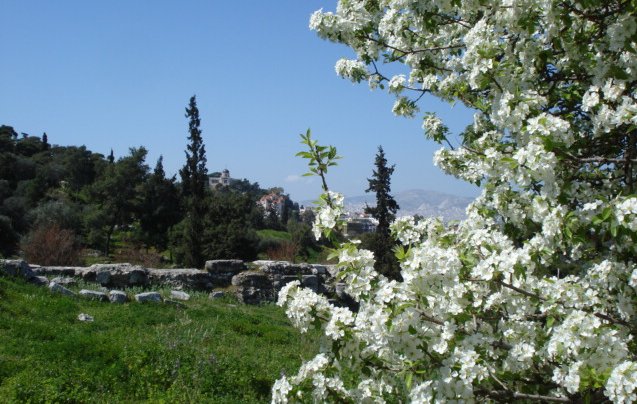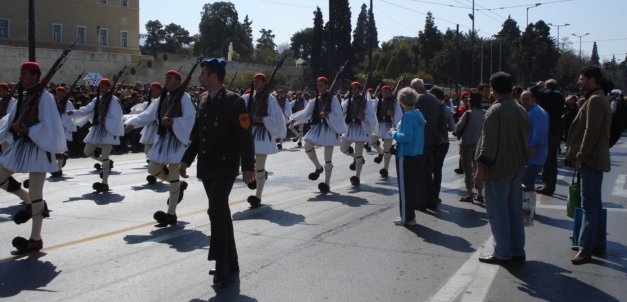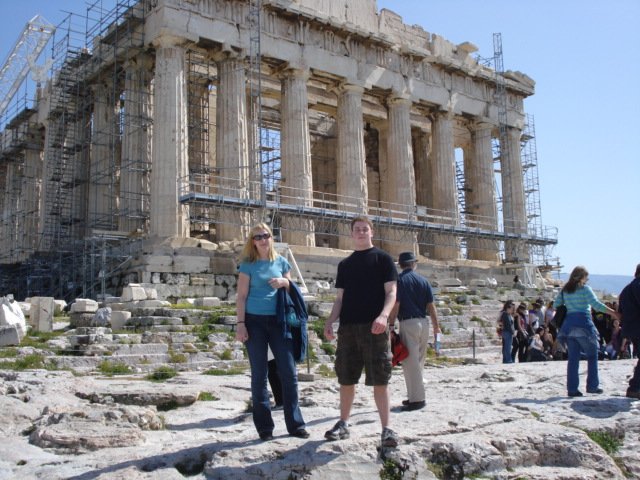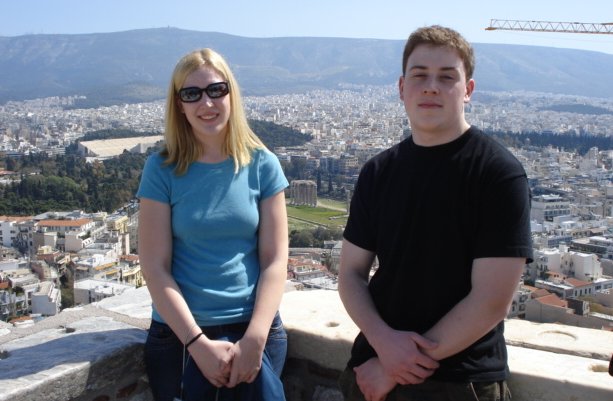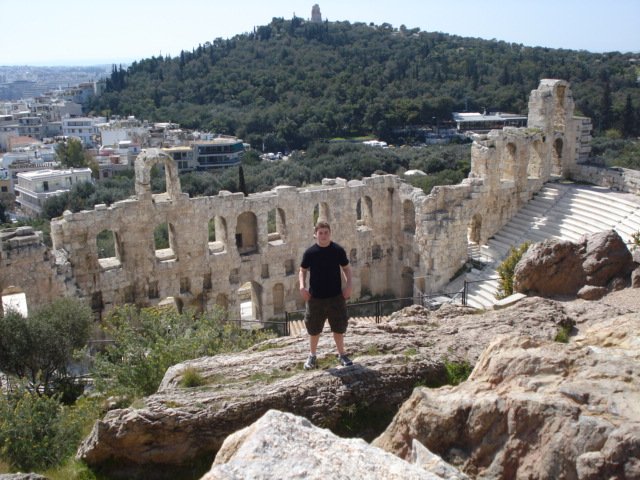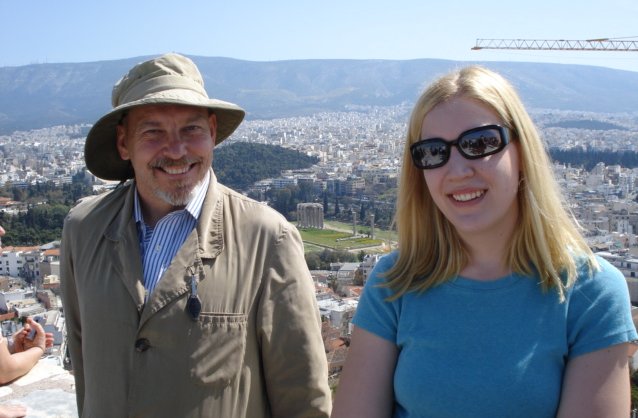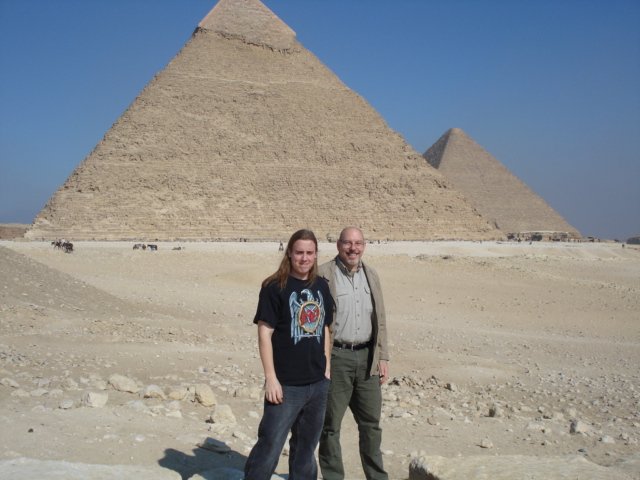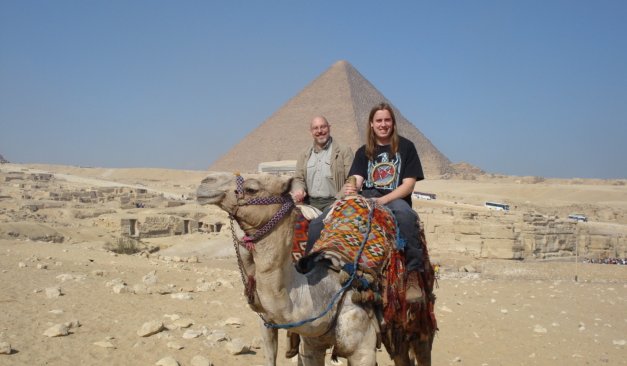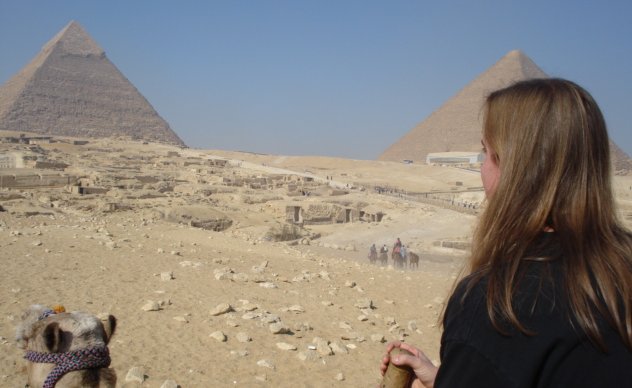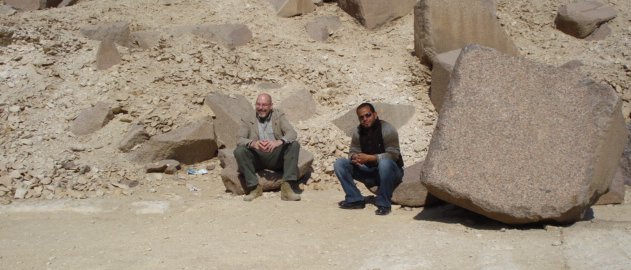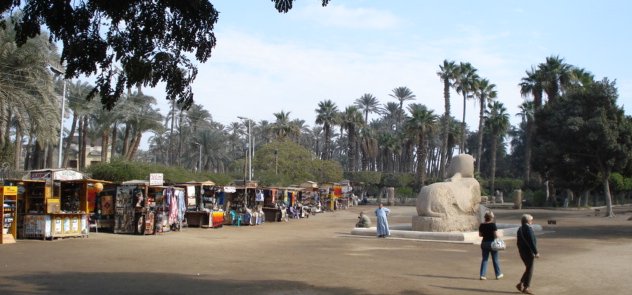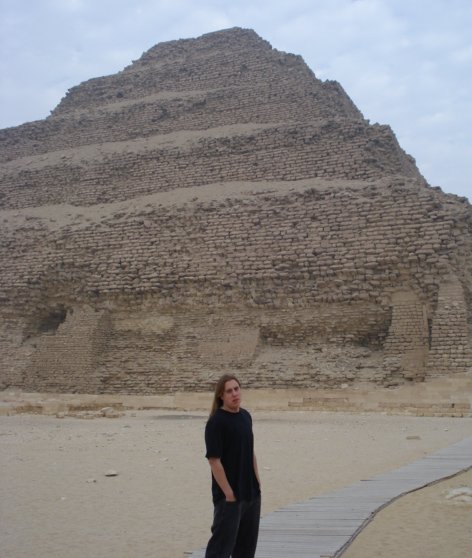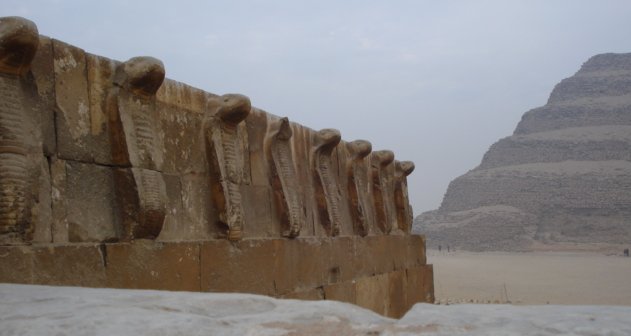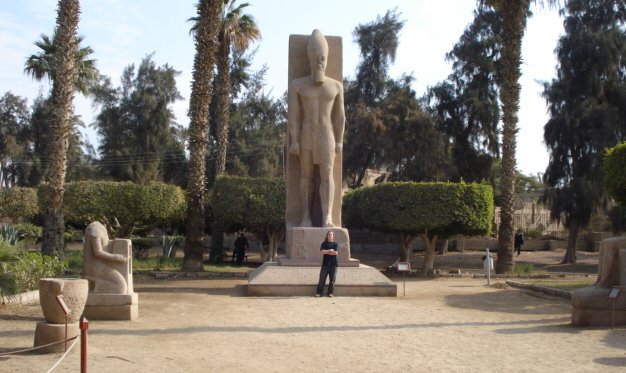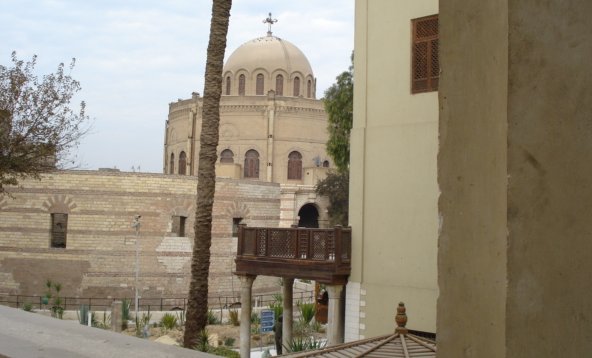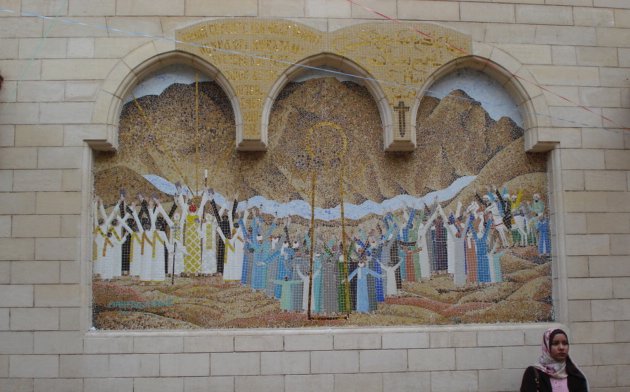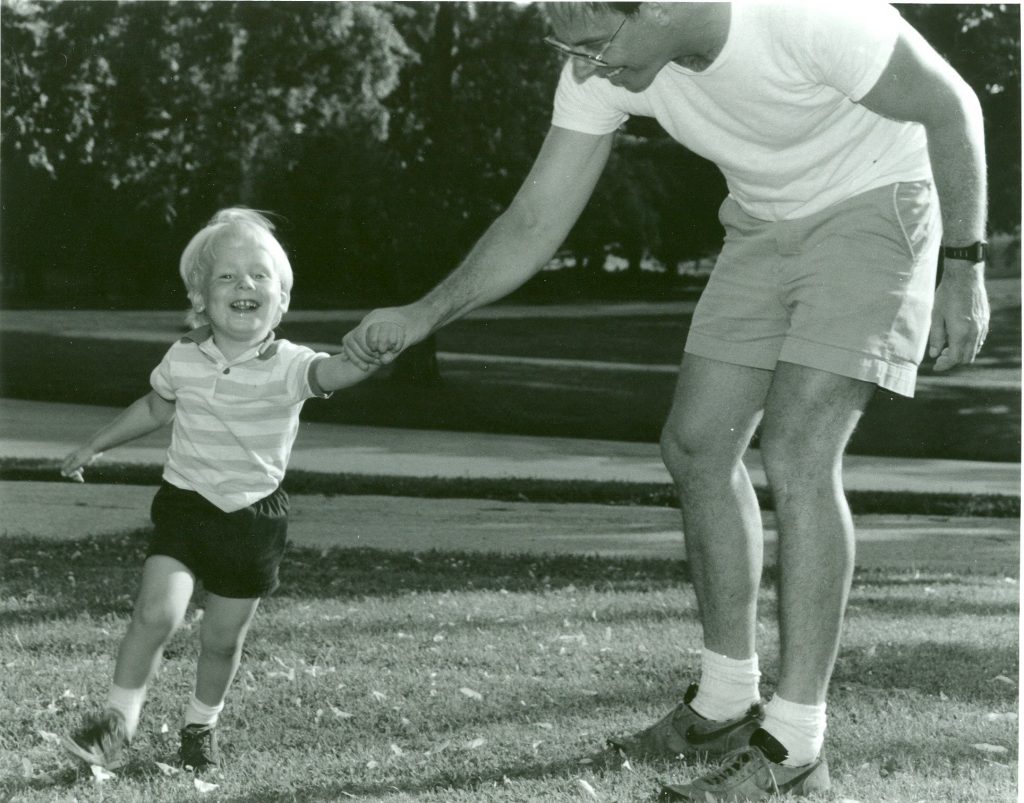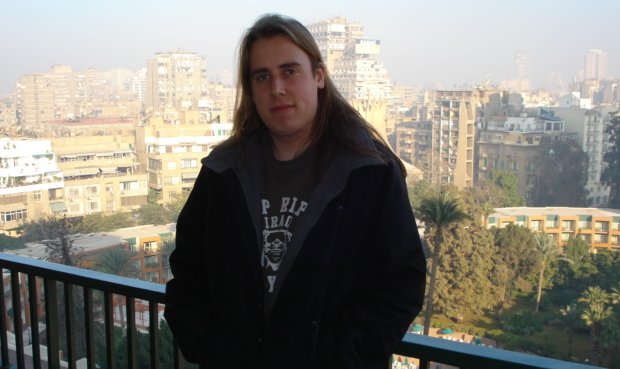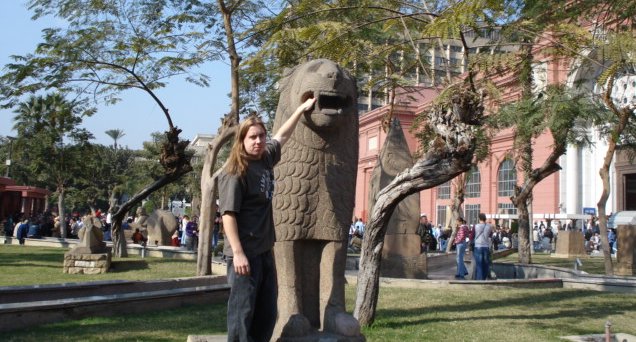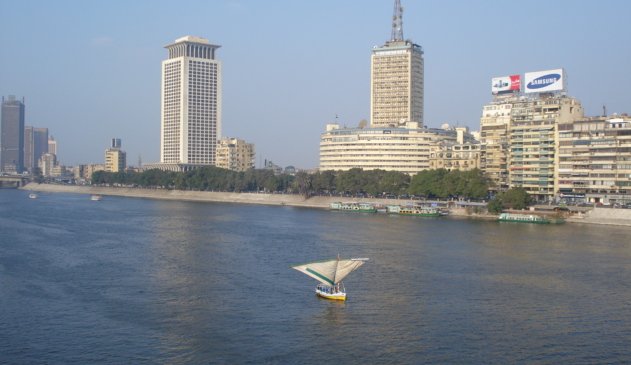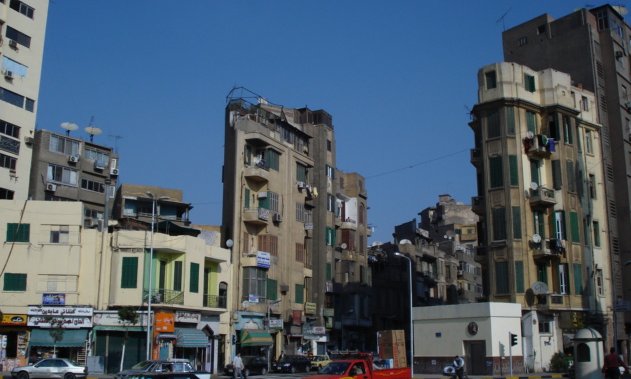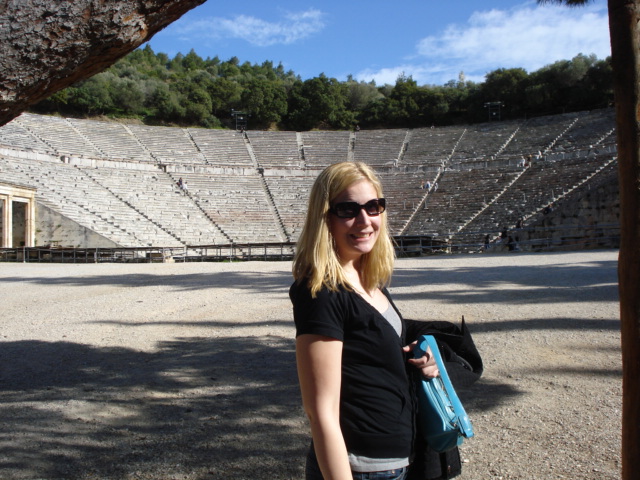
The amphitheatre at Epidarus supposedly has nearly perfect acoustics. We walked up to the top and indeed we could hear people speaking down in the center. Evidently the sound waves flow up the hill and then some bounce off the stone seats in back of each audience member. Given the speed of sound, this is not enough to produce a discernible echo, but prolongs the sound. This is not perceivable and our brains make the necessary corrections so the whole thing enhances our senses. At least that is what I heard. This is one of the birthplaces of drama. It started out as story telling and gradually developed into the kinds of things we would recognize as a play.
This theater is still intact because it was isolated and people didn’t have as much incenitive to steal the stones. Many ruins are not wrecked by time, but rather by salvage.
Epidarus started out as a healing center dedicated to the god of healing, Aesclepius. People would come here to make offerings to the gods. After a while the priests developed a modicum of physician skills and you can trace the origins of medicine to these places. Of course most of what they did had little more effect on actual sickness, other than the value of the rest and psychosomatic benefits. The ancient Greeks were profoundly superstitious people. All pre-modern people were/are superstitious because they don’t have any scientific alternatives. Even those of us who should know better still fall for faith healers, shamans and other charlatans.
The natural setting is beautiful and if you got to hang around here watching plays and not having to work, I bet many people did recover their health, so I suppose it worked. The proximate cause is not always the apparent one, or that one advertised. I remember reading that in the 18th & 19th Centuries many of the very young women who married old rich guys were evidently barren. Their husbands sent them off to “take the waters” at some spa, where lots of young men worked and the miracle of the spa restored their fertility.

